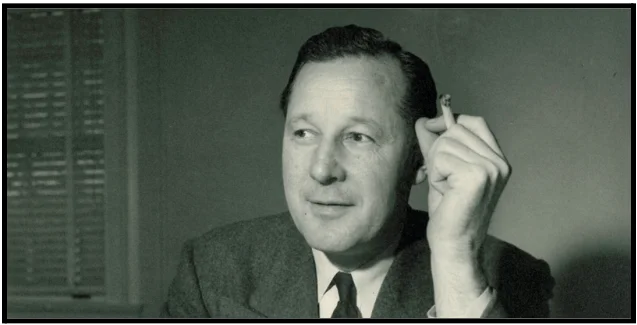Philosophy (but hopefully readable! And not too nerdy! But also – no guarantees!)
Talking Big Ideas.
I am officially back from paternity leave!
I’ll be publishing my own content again soon. But first, I’d like to share a short essay on awe by Lauren Levine. She studied philosophy at Oxford University and has a unique and wise approach to contemplating things that matter – including awe.
Awe is among the most important and powerful emotions to cultivate. You may recall my piece, How to Replace Your Anxiety with Awe, one of the most popular things I’ve written. (Jon Haidt’s shoutout on Twitter helped.)
I hope Lauren’s essay helps you to consider the nature of awe and how you can bring more of it into your life – and the lives of those around you.
Subscribe to Lauren’s Substack for more.
Quick Summary: In this Substack, I discuss (1) how awe shows us life is valuable (2) the value of awe given limited memory and (3) develop a form of awe-consequentialism, and wonder what it looks like if we maximise awe in policy.
Warning: This is philosophy, but only sort-of. It’s thinking out loud, and as a result there are ENORMOUS generalisations here that I can’t evidence and are based on little more than gut feeling. You’ve been warned. My phone’s also exploded and died so if I don’t respond to the lovely people who WhatsApp me interesting + clever things after these posts – I am so sorry! Not being rude!
The saddest idea I’ve ever come across is from Maslow. It’s called Jonah Syndrome. Those who have it cut themselves off from awe, retreat into a whale belly of neutrals, pastels and meh. Maslow says this is because awe is too much. He writes that ‘We fear our highest possibility (as well as our lowest ones)… we are generally afraid to become that which we can glimpse in our most perfect moments’. Awe, in showing us what life can be and how we can feel, risks leaving everything else denuded, and so those with Jonah Syndrome recoil from it. I felt it during The Big Wobble, writing of how I was ‘almost scared of the beautiful and the big’ because returning back to the world after awe made it feel so much greyer afterwards.
But I am so glad I ran after the beautiful and the big – because experiencing awe is something of a reductio ad absurdum for feeling bleak. It offers you a dilemma. EITHER life is one big nihilistic mess and this thing in front of me is meaningless OR this thing is meaningful and – therefore – life is not one big nihilistic mess. And when you’re experiencing awe, it’s a bit of a ‘Well duh’ moment. Of course this thing isn’t meaningless – and so of course the world must have meaning. You simply can’t hold both horns of the dilemma in your head. It’s a little like Putnam’s argument against scepticism – EITHER this is all a hallucination created in the Matrix OR it is true that I have hands. In both cases the alternative feels ridiculous. One option (I have hands; this has meaning) is so much more reasonable than the other.
And I think that’s what I love about awe. It makes a bleak, grey view of the world ridiculous because the antithesis is right there in front of you. All the classics – big sunsets, storms, the sea – all of them take that nihilistic view and go… really? You sure about that?
***
Awe isn’t happiness. Happiness is girl-next-door, yellow, really good pizza. Awe is more idol-from-a-distance, red, Heston Blumenthal. And each has to be valued differently if we are living a life with limited memory.
Happiness is less sticky than awe. Feeling happy – even really happy – hasn’t got the same smack-you-in-the-face quality as awe. It’s more a character of stretches of time, and as a result is evidenced in different ways. I think we can make a guess about whether a passage of time was happy through looking at our habits, looking at our bodies, looking at the memories of other people. But it’s much harder to know. There’s not the same rememberability about happiness.
By contrast, awe tends to be moments with residue. It’s awe that provides us with moments that stick, that retain value. Moments that manage to be precious both for our present self, but also the person remembering that moment in a day or a week or a year. Even if the moment ends up forgotten, there is still a value from experiencing something that we feel would be worth remembering because it reminds us of how things can have value for both our present and future selves. It provides a link between the two, and so breaks the dichotomy of which to prioritise. We feel ourselves to be working for both, in a moment that has value in itself, but also a value that will stretch outwards as we are older, when we return to the feeling, the memory.
***
There is awe in some aspects of modern life, if we stop to think about it. Think about driving on roads, an interaction of thousands to allow you to move from one place to another, a fragile lattice of trust. Or the sheer complexity of how food gets to a supermarket, or the total strangeness of a TV.
If I wanted to, I could experience awe every time a flight takes off. But I tend to go on my phone instead. And I think this is the case for most modern awe. It’s far less ‘on tap’ than in the past. You have to pay attention – because the awe comes from the appreciation of a vast system (history, economics, society), which we have to direct our brains towards. It takes work to arrive there. It’s not easy to find. The awe that exists is a happy by-product rather than something intentionally cultivated. We’ve looked to maximise growth or GDP and in turn the money allows us to satisfy our economic preferences – which brings contentment, or happiness – but not often awe.
So I’ve been wondering what policy would look like if we tried to maximise awe – or (more specifically) the conditions for experiencing awe. This would be a form of awe consequentialism. Consequentialism is basically ‘outcome’ rather than ‘process’ ethics – a way of making decisions that focuses on the amount of something produced, and says that the right thing to do is whatever brings that about. It’s not about what you do, it’s about where you end up. And an awe-consequentialism would look at maximising the amount of awe a policy produces – rather than pleasure.
Keltner identifies eight types of awe – (i) the strength courage and kindness of others (ii) collective movement in dance and sports (iii) nature (iv) music (v) art (vi) mystical encounters (vii) encountering life and death and (viii) big ideas or epiphanies. I’m going to ignore (vi) (mystical encounters) because I don’t think you can create mystical encounters by public policy and (i) (moral strength) because it seems a bit of a minefield to manufacture cases to be morally courageous (I’m also not convinced by the examples Ketner uses).
What these examples have in common is they leave us with ‘the feeling of being in the presence of something vast that transcends your current understanding of the world’. Each of the eight is a gesture at a different kind of vastness – crowds and humanity, the natural world, beauty, God, death, consciousness. I wrote about what I think awe is in On Writing Awe – but roughly it’s a sense of boggling at the balance in a system.
Awe-consequentialism would look to maximise the conditions for awe*. There is not a simple recipe for awe – a clear cause-and-effect Awe Generator. You can stand in front of the Grand Canyon, and still be left cold. It’s just not how moods work (see On Moods for more). But we can increase the frequency of awe through making sure that everybody has access to the conditions that inspire it.
What does this mean policy wise? Some easy wins could come from education – giving the tools to appreciate the awe that can be gleaned from modern life, the dizzying power of capitalism, globalisation and what it enables us to do. It would also send some random issues ricocheting up the agenda. One is light pollution. Out here in Kenya, every night I’m reminded of how strange it is that Kant’s ‘starry skies’ are almost never visible in the UK. Others are the arts – both access to libraries, galleries and concerts, but also devoting enough time to arts education to allow people to appreciate the complexity an artwork gestures at, and experience the awe that results. Another is nature, and also providing spaces for collective effervescence – for crowds of people to come together, to dissolve into one.
Under this framework, sacrificing these things to the altar of growth is absurd. In cutting libraries/ nature/ etc., we substitute gratification for awe. And in awe-consequentialism, that’s unacceptable.
***
Some Challenges (This bit is very skippable, it’s the most thinking-out-loud bit of quite a thinking-out-loud-post):
- A clever friend raised the point about how we can feel awe from atrocities – that awe is not a universally positive emotion. For policy purposes, I’d be tempted to define that out of existence – define the awe we want to maximise as one that only comes from an absence of harm. Clunky, but will do. I’d also want to think about the difference between awe and horror – and try to see how a line can be drawn between the two.
- This is quite a privileged perspective. Maybe it’s laughable to be focusing on awe when for so many people, basic needs aren’t being satisfied. A little let them eat cake. I think that’s a fair comment.
In defence, I’d argue it dovetails with utilitarianism (the view that we should maximise utility, often seen as some form of pleasure) in many aspects. I think it is much more difficult to experience awe if you are hungry, or unsafe, or your basic needs haven’t been fulfilled, or if you are experiencing the mental drag that comes from not feeling financially secure. Taking a global perspective, I think the recommendations would be quite similar.
It may also have very different implications for animal rights. I think it is very plausible animals can experience pleasure and pain, but I’m less certain about whether animals can experience awe. - There’s a question about how much awe can be thought of as a generated by actions that occur over a period of weeks or months rather than a single moment. In Ketners book, he speaks of feeling awe at the perseverance of a child learning how to read, or from a book. I feel like awe doesn’t work like this – that it’s not a property over time, but rather something we experience in a single moment – a rush, the fear and trembling. When we use awe in relation to these longer actions, I think we’re using it as an honorific as opposed to expecting it to have much bearing on reality.
*Or – as a broader project – look at weighing different types of pleasure by their ‘stickiness’ in memory.
***
Last – a recommendation. All The Beauty In The World by Patrick Bringley. Bringley lost his brother, and moved from the New Yorker to be a museum guard at the Met, moving through the first stage of grief through surrounding himself with beautiful things. Readable and lovely.
If you’d like to read more from Lauren, subscribe to her newsletter.




